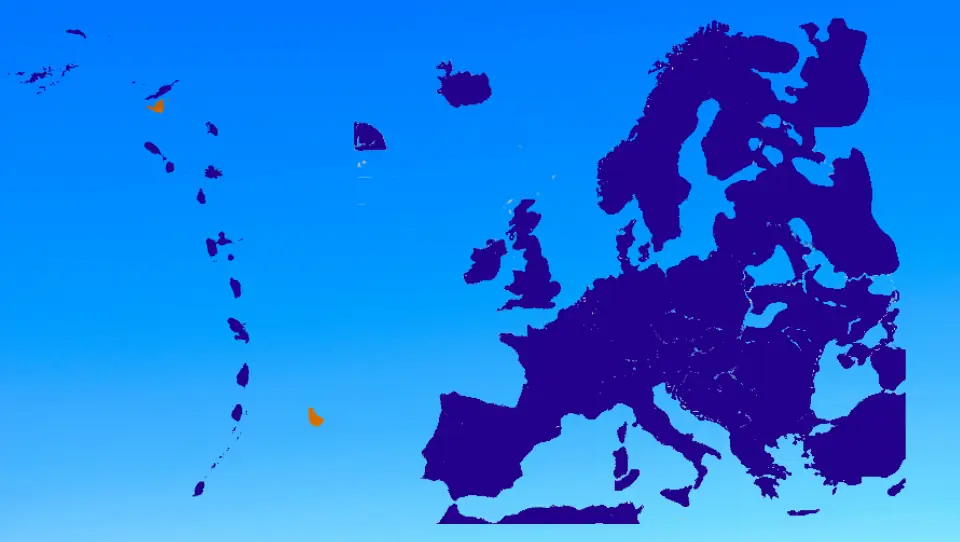Embassies of the Eastern Caribbean States and Missions to the European Union
Embassies of the Eastern Caribbean States and Missions to the European Union

The Embassies of the Eastern Caribbean States (ECS) to the Kingdom of Belgium and Missions to the European Union is a joint diplomatic mission representing and advancing the interests of the Eastern Caribbean States. The Eastern Caribbean States Mission in Brussels forms part of the Organisation of Eastern Caribbean States’ programme of joint diplomatic Missions.
The key focus of the ECS is to advance the political, economic and diplomatic interests of Member States that are jointly represented by the Embassy and Mission to strengthen the relationship with the European Union (EU), its constituent States and institutions.
The Embassies of the Eastern Caribbean States (ECS) to the Kingdom of Belgium and Missions to the European Union is a joint diplomatic mission representing and advancing the interests of the Eastern Caribbean States. The Eastern Caribbean States Mission in Brussels forms part of the Organisation of Eastern Caribbean States’ programme of joint diplomatic Missions.

The key focus of the ECS is to advance the political, economic and diplomatic interests of Member States that are jointly represented by the Embassy and Mission to strengthen the relationship with the European Union (EU), its constituent States and institutions.
Programmes
The Embassies of the Eastern Caribbean States are active in advancing the interests of OECS Member States through a range of representations and significantly through the following regional architectures for cooperation.
African, Caribbean and Pacific Group of States (ACP)

The Embassies of the Eastern Caribbean States represent the interests of their respective countries within the African, Caribbean and Pacific Group of countries’ configuration in Brussels. This group brings together developing countries from these three regions in their specific relations with the European Union as a major donor of development aid and as a market for the export of their products.
The ACP-EC Partnership Agreement signed in Cotonou on 23 June 2000, revised in Luxemburg in 2005 and, in Burkina Faso in 2010 represents perhaps the oldest financial and political framework for cooperation between a developed group and developing a group of countries.
The aim of such cooperation and dialogue is the reduction and elimination of poverty and to contribute to the sustainable development of ACP countries, as well as their integration into the world economy.
The ACP Group meets at varying levels:
- At Summit: Heads of Government (every two years)
- Decision making: This is done at the Council of Ministers (meeting twice a year) and in sectoral Ministerial sessions
- Ambassadorial level: At the Committee of Ambassadors (regular and special sessions at least twice monthly)
- Technical: Sub-Committees. There are six sub-committees where all issues of concern to these countries in the context of their exchanges with the EU are debated and discussed. These are a) Sub Committee on Trade and Commodities; b) Political, social, humanitarian and cultural affairs; c) Sustainable Development; d) Development Finance Cooperation; e) Establishment and Finance, and f) Investment and Private Sector.
- There are also regular working groups (e.g. on commodity issues such as bananas, sugar, and fisheries), ad hoc working groups and special sessions.
- There are also joint ACP-EU institutions: Joint Parliamentary Assembly, Joint ACP-EU Committee of Ambassadors, Joint Ministerial Trade Committee, CDE, and CTA.
European Union – Latin America and the Caribbean (EU – LAC) Dialogue

The European Union Latin America and the Caribbean (EU - LAC) Dialogue is a bi-regional forum established in 1999 to promote discussion and cooperation focused on strengthening political, economic and cultural ties between the European Union (EU) and countries in the
- With the signing of the Treaty of Lisbon and the new European External Action Service as the driver of external policy of the European Union, the ECS, as a part of the Caribbean find themselves being regrouped geographically and even politically with their Latin American neighbours, in the Directorate of the Americas. The LAC configuration is, therefore, becoming of increasingly strategic importance for the ECS as this group consists of developing and emerging economies.
- The Latin American and Caribbean Group of countries meets regularly in Brussels at the Head of Mission level and technical level. The current chair of the group in Chile, having succeeded in Argentina coordinated in 2010.
- The framework of relations between the LAC and the EU is governed by the outcomes of the LAC-EU summits. The last summit was held in Madrid in 2010 where Heads agreed on a Declaration and Action Plan. The areas of focus under the Madrid Action Plan are i) Science, research, innovation and technology; ii) Sustainable development, environment, climate change, biodiversity, and energy; iii) Regional integration and interconnectivity to promote social inclusion and cohesion; iv) Migration; v) Education and employment to promote social inclusion and cohesion, and vi) the world drug problem.
Contacts
Desmond Simon
First Secretary
Tel: 32 2 536 0143
Diani Prince
Special Envoy from Saint Vincent and the Grenadines
Tel: 32 2 536 0143
Forciana Parillon
Senior Administrative Assistant
Tel: 32 2 536 0143



